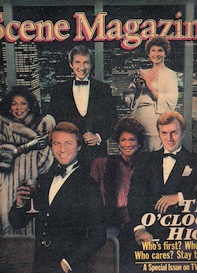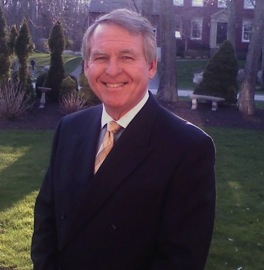Former KXAS (Channel 5) anchor Dave Layman speaks candidly about the perils of anchoring, drinking, driving
05/10/12 02:59 PM


@unclebarkycom
Dave Layman got dropped as an anchor at KXAS-TV (now better known as NBC5) in the same year that Jane McGarry arrived at the Fort Worth-based station.
Those were the long-ago days when both news directors and on-air personnel talked candidly about what led to a parting of the ways. In Layman's case, he considered himself a reporter first and an anchor second. And after just 20 months of anchoring KXAS's 5, 6 and 10 p.m. newscasts with Jane Jayroe, that proved to be an unwieldy mix in the view of station management.
The details are in this previously published May 20, 1982 article by your friendly content provider. But there's now a new chapter. Layman emailed me Thursday to express his feelings about McGarry's DWI arrest early Sunday morning and how he and many other high-wire news anchors for years have tempted the same fate.
He initially wanted it to be private, but reconsidered upon request. "You can use whatever you want and you can use my name," Layman agreed. "I have fought for transparency in media and government all these years, so I should insist on it for myself as well."
Here, in his own words, is what Layman has to say. It's highly recommended reading.
Ed Bark
By DAVE LAYMAN
I feel awful for Jane McGarry. News anchor or not, she is a human being. I am sure in her three decades she has endeared herself to the DFW audience and has devoted a lot of her free time and energy to causes that have benefited many people.
That shouldn't be overlooked. That is also not a waiver of responsibility. She apparently made a mistake and is paying for it dearly, regardless of the outcome. It's also fair to say that she is a legitimate news story because she is a public figure by choice.
When I was anchoring in Dallas, I, too, was a drinker -- a moderate one. At the time, Texas law allowed drivers to drink and drive. I still can't believe that.
When I returned to Providence as an anchor and occasional news director/anchor, I continued the practice from time to time on weekends -- having a drink at home with my girlfriend at the time and then headed to Newport (30 minutes away) drinking a "traveler" in the car on the way. In Rhode Island, however, there was no such allowance for drinking while driving.
At one point, I thought, "How dangerous is this!" While I never did this under the influence, I thought I am risking my career and reputation by drinking and driving in a state that does not permit it. More importantly, I was risking injuries to myself and others.
So I quit. December 17, 1987 was the last day I had an alcoholic drink. Period. And that's my point in writing this.
I am now a marketing/media/PR consultant. If I had a high profile client -- and he/she asked for some counsel along this line -- I would tell them if they wanted to avoid a host of problems, including a DUI/DWI threat, quit drinking. Period. It's not worth it, even if you don't have a "drinking problem."
News anchors are in high stress/high adrenalin positions. In many ways, these jobs are very different from others -- almost unique. Every day they perform. Every day there is a critique. Every day there is disappointment or exhilaration. At the end of your shift, you are generally on a "high."
If you do the early or late news, the high ends abruptly and you go home or go out to a local bar. Often, there is an attempt to continue the high. Alcohol is a wonderful partner, even if it is just two or three drinks. Alcohol affirms and continues the great mood after a particularly good newscast. Alcohol glosses over and helps you minimize those days when things went poorly or the ratings came in. It's also a way of having a good time at a bar afterwards, "where everyone knows your name and face."
That's why my advice to high profile people is to end the drinking. It doesn't stop you from doing stupid things, but it reduces the likelihood -- and the risk of hurting others, yourself and your reputation. As I look back on my four decades in broadcasting (I still do a weekly news/public affairs/analysis program on the Rhode Island PBS station), quitting drinking was the best career decision I ever made.
Just some thoughts as I see Jane join the daily list of news anchors around the country publicly humiliated and in deep personal and professional straits -- thanks to a liquid friend that is more liquid than friend.
